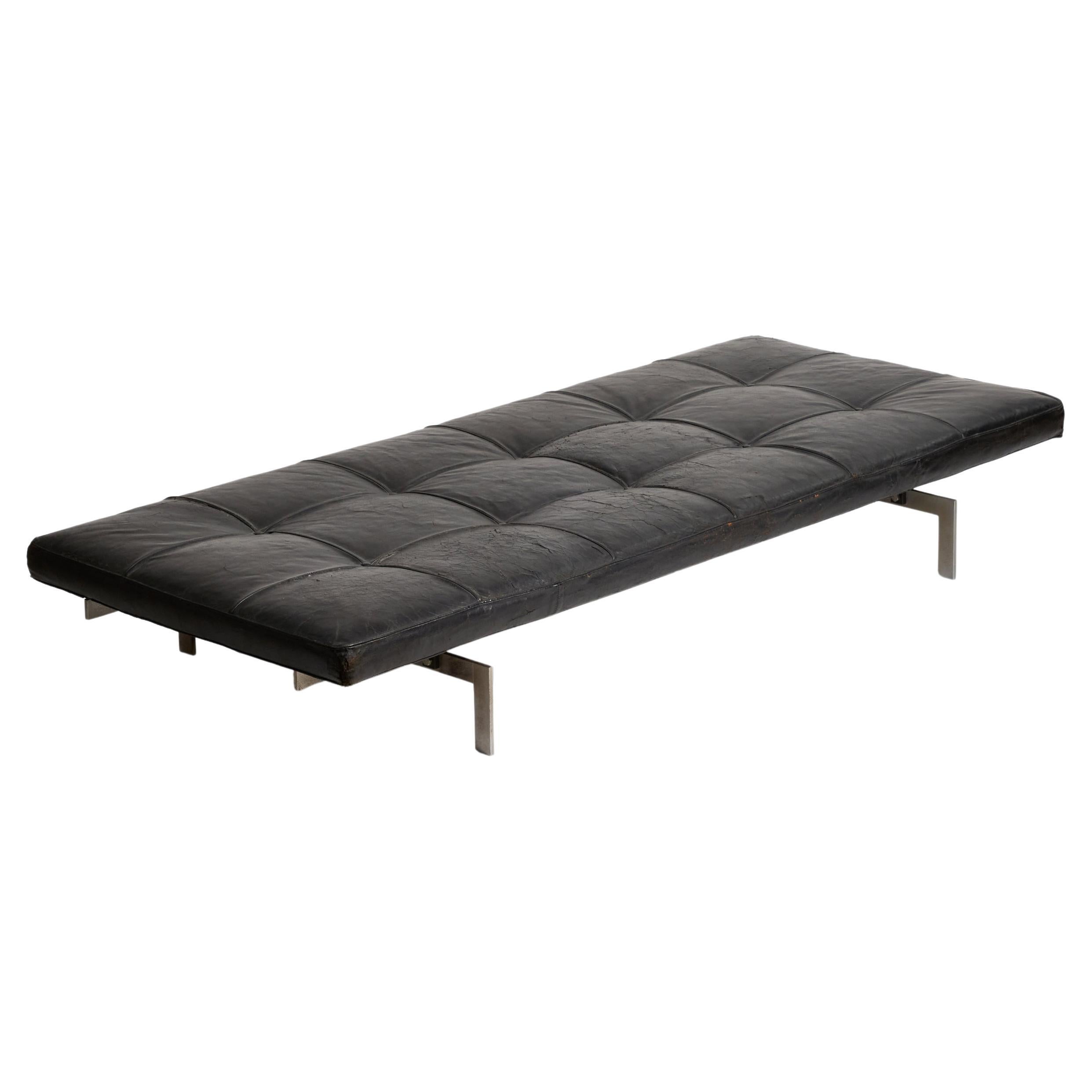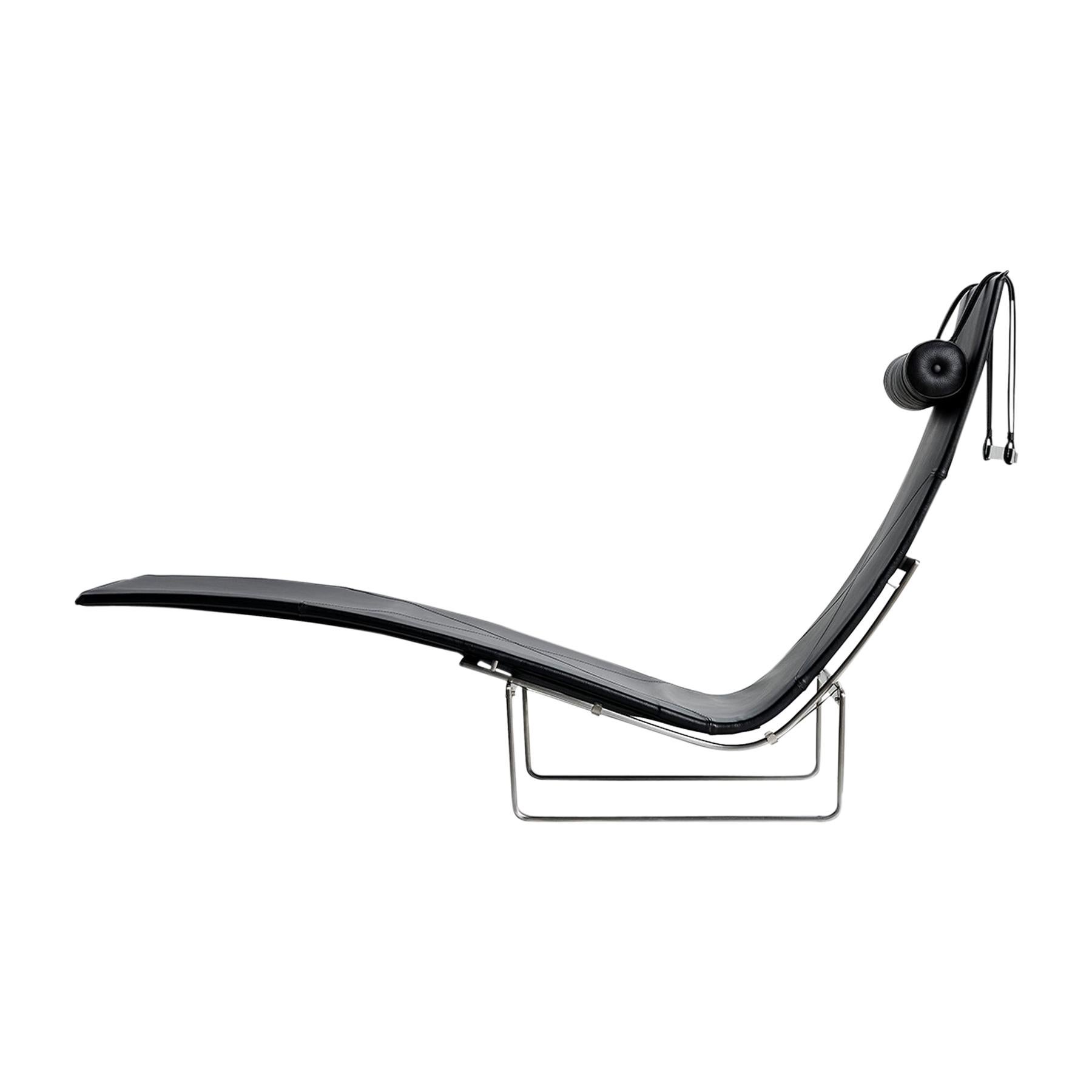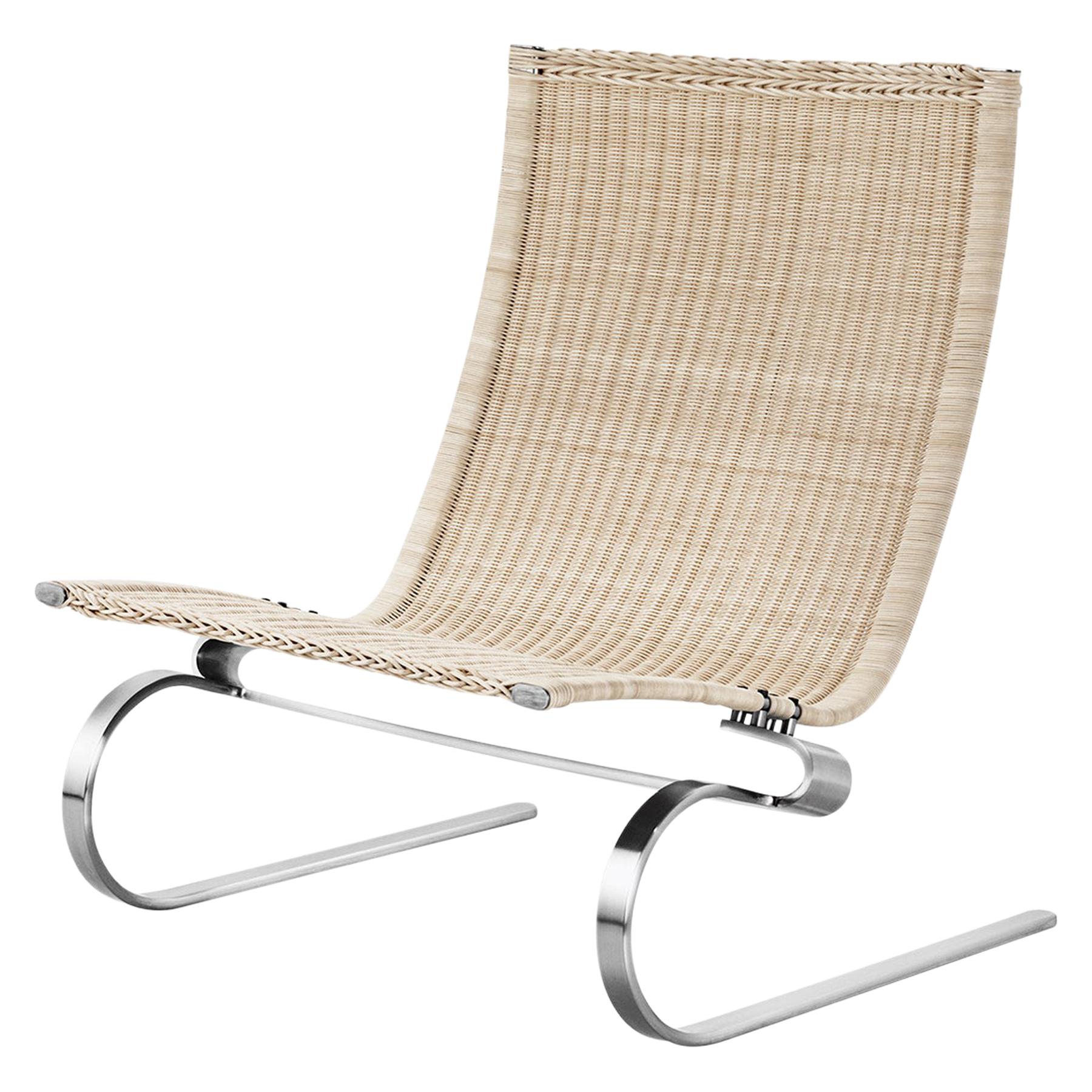
Poul Kjærholm Daybed PK80
View Similar Items
Poul Kjærholm Daybed PK80
About the Item
- Creator:Fritz Hansen (Manufacturer),Poul Kjærholm (Designer)
- Dimensions:Height: 12.5 in (31.75 cm)Width: 74.5 in (189.23 cm)Depth: 32 in (81.28 cm)Seat Height: 12.5 in (31.75 cm)
- Style:Scandinavian Modern (In the Style Of)
- Materials and Techniques:
- Place of Origin:
- Period:
- Date of Manufacture:2004
- Condition:Shows no signs of use.
- Seller Location:Crockett, CA
- Reference Number:Seller: 7361stDibs: LU91556403393
Poul Kjærholm
A trained cabinetmaker, Poul Kjærholm’s use of industrial methods and materials in the 1960s brought a fresh, graceful, sleek new style to Danish modern design.
At what is now the Royal Danish Academy of Fine Arts in Copenhagen, Kjærholm studied under Hans Wegner and Jørn Utzon — an industrial designer and the architect of the celebrated Sydney Opera House. The latter greatly influenced Kjærholm’s furniture production techniques — although he employed natural materials such as cane and leather, to a far greater extent than his peers Kjærholm embraced the use of steel (rather than wood) framing for his chairs, daybeds and tables.
Kjærholm’s signal design was the PK22 chair of 1956, a low-slung leather lounger on a steel base. The ideas introduced in the PK22 — Kjærholm’s designs were named using a numeric system devised with his manufacturer, E. Kold Christensen — were refined throughout his career, as the offerings below show: the PK11 chair of 1957, with back and armrests formed by a semicircle of ash; the capacious, richly patinated leather seat of a vintage 1961 PK9 chair; the elegant rattan swoop of the PK 24 chaise longue (1965). The chaise longue's leather headrest, held in place by a steel counterweight, best shows Kjærholm's particular gift for combining technological advancements with a respect for traditional detailing.
While respectful of the past, Poul Kjærholm's sensibility is one of optimism and expectation. His was design for those who lived with verve and élan, and confidently anticipated the future.
Find a collection of vintage Poul Kjærholm furniture on 1stDibs.
Fritz Hansen
When the Copenhagen-based furniture maker Fritz Hansen opened for business more than 140 years ago, the company — which today styles itself The Republic of Fritz Hansen — adhered to the traditional, time-honored Danish values of craftsmanship in woodworking and joinery. Yet thanks to the postwar innovations of Arne Jacobsen and others, Fritz Hansen would become the country’s leader in Scandinavian modern design using new, forward-looking materials and methods.
Fritz Hansen started his company in 1872, specializing in the manufacture of small furniture parts. In 1915, the firm became the first in Denmark to make chairs using steam-bent wood (a technique most familiar from birch used in the ubiquitous café chairs by Austrian maker Thonet). At the time, Fritz Hansen was best known for seating that featured curved legs and curlicue splats and referenced 18th-century Chippendale designs.
In the next few decades, the company promoted simple, plain chairs with slatted backs and cane or rush seats designed by such proto-modernist masters as Kaare Klint and Søren Hansen. Still, the most aesthetically striking piece Fritz Hansen produced in the first half of the 20th century was arguably the China chair of 1944 by Hans Wegner — and that piece, with its yoke-shaped bentwood back- and armrest, was based on seating manufactured in China during the Ming dynasty. (Wegner was moved by portraits he’d seen of Danish merchants in the Chinese chairs.)
Everything changed in 1952 with Arne Jacobsen’s Ant chair. The collaboration between the architect and Fritz Hansen officially originated in 1934 — that year, Jacobsen created his inaugural piece for the manufacturer, the solid beechwood Bellevue chair for a restaurant commission. The Ant chair, however, was the breakthrough.
With assistance from his then-apprentice Verner Panton, Jacobsen designed the Ant chair for the cafeteria of a Danish healthcare company called Novo Nordisk. The chair was composed of a seat and backrest formed from a single piece of molded plywood attached, in its original iteration, to three tubular metal legs. Its silhouette suggests the shape of the insect’s body, and the lightweight, stackable chair and its biomorphic form became an international hit.
Jacobsen followed with more plywood successes, such as the Grand Prix chair of 1957. The following year he designed the SAS Royal Hotel in Copenhagen and its furnishings, including the Egg chair and the Swan chair. Those two upholstered pieces, with their lush, organic frames made of fiberglass-reinforced polyurethane, have become the two chairs most emblematic of mid-20th-century cool. Moreover, the Egg and Swan led Fritz Hansen to fully embrace new man-made materials, like foam, plastic and steel wire used to realize the avant-garde creations of later generations of designers with whom the firm collaborated, such as Piet Hein, Jørn Utzon (the architect of the Sydney Opera House) and Verner Panton. If the Fritz Hansen of 1872 would not now recognize his company, today’s connoisseurs certainly do.
Find a collection of vintage Fritz Hansen tables, lounge chairs, sofas and other furniture on 1stDibs.
You May Also Like
Mid-20th Century Danish Mid-Century Modern Daybeds
Stainless Steel
Mid-20th Century Danish Mid-Century Modern Daybeds
Steel
Mid-20th Century Danish Mid-Century Modern Daybeds
Steel
Vintage 1950s Danish Mid-Century Modern Daybeds
Steel
21st Century and Contemporary Danish Scandinavian Modern Lounge Chairs
Steel
21st Century and Contemporary Danish Scandinavian Modern Lounge Chairs
Steel

















